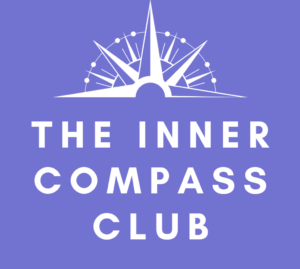Meena's Musings
Guilt and Shame
Share
Shame and guilt are the mental constructs of the mind to help us fit into the societal mold of what’s right and wrong. These are merely our defense mechanisms, established to bridge the gap between what we want and what we think we should want. In this complex structure of feelings, the truth of what we actually feel and believe gets lost somewhere, or at least distorted, leaving most of us feeling insecure about what and how to eat; we chase the latest food craze, and coming up short every time. All this anxiety about food negatively affects our ability to digest it. We become hyper-sensitive to everything we eat. With every bite we take, we ingest a morsel of fear, guilt, shame and confusion right along with it. We believe we have no right to enjoy our food anymore, making that gap between what we want and what we should want bigger and bigger, and leaving food to fill that gap. Calling some foods “guilt-free” only emphasize the misplaced guilt we experience in eating and nourishing ourselves. The comfort we derive from food turns to guilt and shame if we don’t resolve the deeper emotional challenges that are keeping us from living full, vibrant lives.
Most, if not all of us, struggle with a lack of worthiness. Is it humility? Our ego? Are we just playing safe? I mean, we don’t want to toot our own horn! What if we believed we were good enough but then later told that we weren’t?! As I pondered this idea while writing this book, I realized that worthiness has nothing to do with our successes or failures: that would mean that each time we fail we are deemed unworthy, and that’s simply not true! Worthiness is granted by that which created us. The Creator definitely thought we were all worthy, and created us all with an equal dosage of worthiness. Simply because we are born, we are worthy and good enough. Because we are on this planet, we are good enough. We are worthy of experiencing this human life, as difficult as it may sometimes be. We are worthy of learning the lessons set out for us and becoming whole. Worthiness is not the result of our accomplishments or lack thereof. Certainly, our challenges can make us question our worthiness and that’s exactly when we should remember where we come from and who we truly are. We are good enough to enjoy the experiences we are here to experience, including decadent chocolate chip cookie cake.
The deeper beliefs that we are unlovable and unworthy can’t be resolved with food, as we eventually discover. And what if we were viewing food as the temporary solution to a problem that had nothing to do with food? Now, on top of feeling unworthy, we begin to feel guilt and shame, since we know that what we are doing is not going to serve us, yet we can’t stop. The more we suppress our feelings, the stronger they become. We get stuck in an insidious cycle, not only perpetuating our painful feelings, but embedding them deeper into our subconscious. Our basic human need to feel loved and worthy gets undermined when we use food to satisfy it. The brain becomes confused about whether to satisfy the physical hunger or the emotional hunger. The lines become blurry and we begin to play a game of “hide and seek” with food. What once was a pleasurable and satisfying experience becomes this phantom that we either run to or run from: controlling and logging every morsel that goes into our mouth or eating with reckless abandon, ignoring the physical symptoms of being full, yet remaining unsatisfied. How do we find that middle ground?

